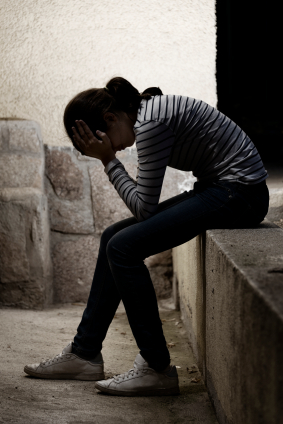BEREAVEMENT is a process where our body seeks to manage and overcome the death of someone. BEREAVEMENT is associated with a set of very intense emotional and physical reactions that are difficult to control and can affect our normal functioning and well-being.
Losing someone close (either a relative or friend) because of murder makes the experience of grief even harder.![]()
Each person reacts differently to the loss of someone close. So, don’t compare what you are feeling or how you are reacting to what other people are feeling or how they are reacting. At this point you have no "obligation" to feel, think or react in a certain way.
There is no right or wrong reactions...THERE ARE JUST REACTIONS. These are natural reactions, which many people have when experiencing a difficult, painful and demanding situation.
Although it is difficult to accept that someone's death cannot be undone, grieving is temporary...even if it takes some time.
There is no fixed time for overcoming someone's death.
The time of the grieving process depends on:
- the personality of the person who is grieving;
- how close we were with the person who died;
- the event that led to his/her death.
Do not try to rush things and don’t expect that what you are feeling will vanish all of a sudden.
![]()
When someone close dies because of murder we can feel:
- shocked;
- confused and difficulty believing what happened (almost does not seem real or it seems like a nightmare);
- empty, as if they were not able to feel anything or react;
- angry, with others, with those responsible for what happened and with the victim who died;
- desire for revenge (against the perpetrator of the crime);
- guilty:
- for what happened, as if we were somehow responsible for the murder or could somehow have prevented what happened;
- for something that happened before the death of the person (for example, because of something we discussed a few days before, or because we didn’t have the opportunity to say or do something with the person who died);
- for being alive;
- embarrassed:
- for having shown emotions in the presence of others;
- for not having reacted the way we thought was "normal" to react;
- sad, with constant desire to cry or with frustration because we are deeply saddened, but can’t cry;
- depressed, feeling that life has lost meaning, importance or purpose;
- lacking interest in activities once appreciated;
- alone, because we think nobody will be able to understand what we are feeling;
- longing for the person who died;
- fear of being alone;
- afraid of the perpetrator, especially in cases where he/she was not arrested;
- fear and anxiety because of the investigation and the possibility of going to Court to give evidence. Search on Going to Court for more information about this.
- anxious about the future and family functioning (when the victim was a family member).
![]()
Some physical and mental symptoms may also appear:
- feeling sick;
- dizziness;
- headaches;
- tiredness and loss of energy;
- difficulty sleeping or nightmares;
- loss of appetite;
- constant crying;
- frequent memories and thoughts about what happened;
- thoughts of our own death;
- difficulties in concentrating;
- loss of memory and forgetting;
- confusion (e.g., not knowing what day of the week it is);
- difficulty in performing usual tasks (e.g. bathing).
 |
Negative social and family consequences may arise:
|
![]()
These are reactions that many people have when dealing with grief... but there may be many others. You can feel other things and have many other reactions.
It is important to remember that most of these reactions are natural and you will not feel them forever. Whilst some of the behavioural changes mentioned are very serious as they can result in you and other people being harmed. It is important to get help to deal with the issues and put a stop to these harmful behaviours. Search Strategies to protect yourself for more information.
When the pain starts to fade away that does not mean you have forgotten the person who died. It means that you've already been able to accept the experience you went through as a part of your life story.
Even after all these reactions pass and you've accepted that a certain person is gone forever, there can be times when you feel more fragile ... often on the most significant days (such as the anniversary of the death) or seasons that are associated with family celebrations (like Christmas for example).








